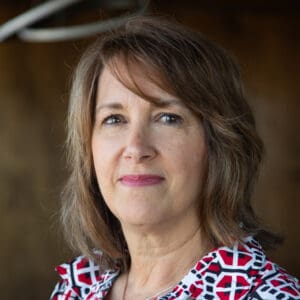Last week, we published a story by visual journalist Hailey Hoffman spotlighting a Bellingham family’s good work to feed and provide essential resources to the homeless. Hanah Warthan calls the work “a mission from God.”
The family, led by Warthan, works together to get meals, blankets, clothing and resources to those in need — filling gaps around other local social service operations. Warthan’s main partner in the Mission for Missy nonprofit is her son Adrian Valentino Quinn, a recovering addict whose girlfriend’s death from an opioid overdose in November 2022 spurred the mission.
This was an important visual story for Cascadia Daily News to tell — a dedicated, grassroots solution to reach so many in need who live in encampments. Part of our role is to provide an unflinching, honest look at all aspects of our communities and how people relate to one another.
We make decisions about coverage knowing our story subjects could sometimes have a criminal past, or other troubling facets or allegations from their past. We take steps to reflect on and discuss unexpected challenges in storytelling, and we always remember our credibility is at stake. People often are complicated, with a mix of positive and negative life choices and consequences in their past. This means, as journalists, we weigh the unfavorable facts we’ve discovered against the value and newsworthiness of telling their stories.
These complex situations are rarely black and white, and we have robust discussions in the editing process as stories progress. We apply reasoning of the public’s need to know, the help it could produce as well as the harm it could inflict. We also consider the lasting influence our journalism wields from published writing, photographs and video.
In many cases, we do background checks to verify a person’s identity and history and to avoid boosting a person with a questionable past. Best practice is to be transparent and those adverse details become a part of the story. In our reporting of this nonprofit, we were aware of Warthan’s time in prison and how she had turned around her life to focus on helping others. She was open to us about it. We verified her nonprofit was filed with the state. We were aware her son battled an addiction problem a year ago.
But an email from a reader introduced more details about Quinn that were unknown to us. We had identified him as Adrian Valentino because he did not provide his full name to our reporter.
A records check Monday, Oct. 28 revealed he’s facing a rape charge and has faced several other troubling allegations and complaints in past years. He claims he’s innocent as the rape case moves through Whatcom County courts.
When questioned about the allegations Tuesday, Quinn, 23, told us, “My past has brought me to where I am. Being charged turned into tragedy. My mom and I wanted to turn that tragedy into something good.”
His part of the story was small, but we published several photos of him actively working with Warthan and other family members. This raised questions about how his past reflected on the nonprofit’s work. Quinn told Hoffman this week he’s “going to try to do good. I don’t see myself or think of myself as a perfect person and I don’t think anyone can.”
If we had been more aware of the allegations, we would have revealed them and likely changed the story trajectory. Transparency is a key tenet of our newsroom. We believe our readers should have a full picture of our story subjects — and our reporting processes — and come to their own conclusions.
Hoffman always reports with great sensitivity and empathy for subjects and her insight has been invaluable to recent discussions about this particular story.
We are adding more information to Hoffman’s reporting in the online story and will continue our standard of multiple background checks when necessary. We fell short in this case and readers need to know our reporting can be trusted. It’s our responsibility to make sure it’s done thoroughly.
Rhonda Prast is CDN’s managing editor; reach her at rhondaprast@cascadiadaily.com; 360-922-3090 ext. 112.




No country still uses an electoral college — except the US